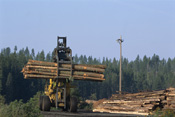
|
|
Repair costs, how regular maintenance keeps them low

One of the key parts of lean manufacturing is proper installation and upkeep of machinery. Repair costs are a preventative measure used at reducing waste and avoiding future problems within the company. Routine maintenance can help a manufacturing plant prepare for future repair costs. If the inspector notices a problem with a machine, they will be able to give you a prediction as to when they think the machine will break down. Having a time frame will allow you to accumulate the money to pay for the repair costs or to purchase a new machine.
A simple way lower your repair costs are to have your machines undergo routine maintenance once or twice a year. Each machine, tool, product, and part needs to have an inspection. When a thorough inspection happens, the defects can be identified and you can actually wind up saving more money because you found the problem that was costing you more money. Keep documentation of the routine maintenance so you can identify when the machine, tool, part, or product needed repair. If you can keep track of the maintenance, it is easier to determine if updates or changes may have caused the problem in the first place.
|
|
Another way to reduce your repair costs is to purchase newer equipment and stay up-to-date with equipment releases. The newer the equipment, the easier it is to acquire parts for it. Only purchase machines and other equipment that comes with a warranty. Having a warranty is like having insurance and it can protect you from faulty machinery.
Always acquire a list of all the parts that have been repaired on the machine as well as a list of all the parts that are on the machine. If you notice some parts are getting old, you may want to speak to a repair technician about replacing them before they start causing problems and before they become costly. The sooner you can replace a part before it is completely worn out, the easier it is to prevent further damage to the machine and expensive repair costs in the future.
Every employee that operates the machine needs to be trained on the basics of the machine. Some problems can be fixed on-site without the need to call a repairman. For example, if you operating a printing facility, all your printing press managers need to understand how to not only operate the presses, but they need to know what to do if a piece of paper becomes stuck on the ink roll. They must understand how to remove the ink rolls, properly clean them, and put them back on the machine to watch it start printing again. Even with extensive training, there will be times when errors happen. You cannot prevent everything from going wrong. Teach your employees to watch the equipment often and to report if they notice anything that seems unusual. It is similar to driving a car, when you hear an unusual sound; you normally take the car to someone that can fix it.
Staying alert can prevent costly repairs. Always make sure the machines are properly lubricated and well-maintained. Keeping the machines clean can prevent build-up of dangerous chemicals and other things. When a machine is properly cleaned and lubricated, it runs better. The chains, wheels, and other parts of the machine will run better and you may prevent future repairs.
If you do not keep your machines properly maintained, you will pay for it. Ignoring routine maintenance could mean you are letting a small problem, like a loose bolt, become bigger. A simple loose bolt could cause a wheel to come off track and the entire conveyer belt could stop working. This is why it is important to always plan ahead and take preventative steps when it comes to your machinery.
Privacy Policy, Terms of Use